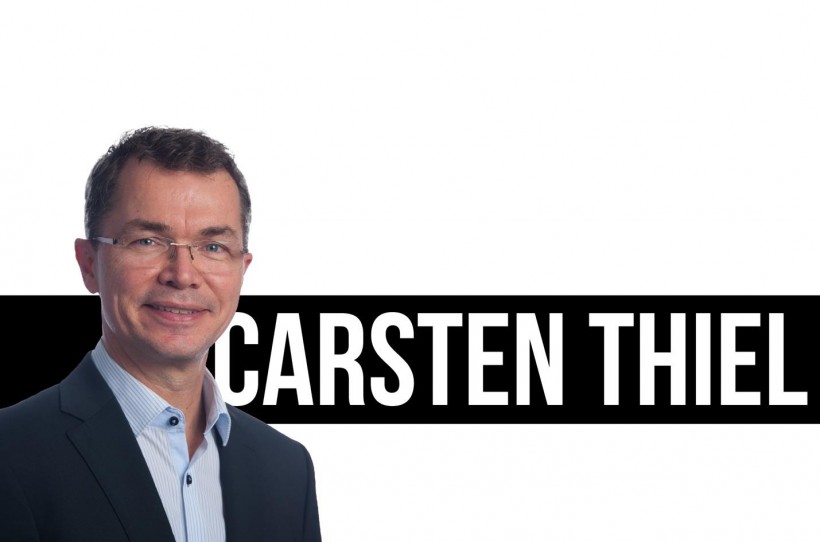We've all seen the headlines this past holiday weekend about the hundreds of flights that were canceled, with a pilot shortage being cited as one of the major drivers in the reliability struggles airlines have been facing. However, the airline industry is hardly the only sector grappling with recruitment and retention. The hiring freezes, layoffs and furloughs that occurred at the onset of the coronavirus pandemic in 2020 led to record-breaking unemployment, but even over two years later as unemployment rates remain elevated above pre-pandemic levels many employers are struggling to fill roles.
Why is this important? Our labor market is currently candidate-driven and appears positioned to remain that way for the foreseeable future. Factors contributing to this include increased competition due to a surge in open positions and the safety nets some people built in their bank accounts during the pandemic, but at the end of the day they all add up to the fact that professionals are able to be more selective in not only the positions they seek, but the companies they choose to work for.
The unprecedented changes during the pandemic caused workers to re-evaluate their careers. For many, this was their first experience with concepts such as remote work, and the work/life balance that it created appealed greatly to them. They relished in the time and gas saved without commuting to work, and established a strong routine within the comfort of their own home. While people have been missing out on social contacts in the office, they have indeed discovered a new quality of life. This puts employers in a new reality, as the competitive job market means they need to create workplaces that attract talent and retain it during a time when one employee's needs and desires can differ greatly from another's. In order to do so, employers need to become more flexible.
Has our office world changed?
"My impression is that the reasons people stay at companies have changed," says Dr. Carsten Thiel, chief executive officer of the global biopharmaceutical company EUSA Pharma. "After these two years, I think flexibility is what people are really asking to have. It is, for me, probably the single biggest a-ha effect of these two years of pandemic."
Dr. Thiel has nearly three decades of leadership experience, including a number of executive positions such as vice president, head of Europe at Amgen and executive vice president and chief commercial officer at Alexion Pharmaceuticals, Inc. He has built out teams in companies both large and small, and in his time as a leader has seen the job market through a number of twists and turns but none comparable to where it currently stands today. According to Thiel, the pandemic impacted people in different ways and this means there is no longer a one-size-fits-all solution.
So what do office workers now expect?
A global survey conducted by EY of over 16,000 employees across 16 countries and multiple industries and job roles confirmed Thiel's observation, with nine in ten respondents indicating they want some form of flexibility. Over half of those surveyed indicated they wanted flexibility in when they work, and 40 percent wanted flexibility in where. While there have been a fair amount of articles fear-mongering employers on a lazy workforce that has no desire to return to work, the survey found that employees are not interested in absolutes either and want to work between two and three days remotely on average.
Millennials are different.
The survey also found that job retention was affected by age: those in the millennial age group indicated they were twice as likely to quit as baby boomers. Thiel says this lines up with the changes in the way people have decided on accepting a position over the years.
"We were looking at financials as the most important factor in job decisions, in the choices where people want to go and to which company. 'What is my salary?' Maybe other financial benefits like how the pension looks," says Thiel. We've also seen the slightly younger generation looking at other benefits. Is there a fitness room in the company? Are there other offerings from gymnastics to healthy food and so on?"
Money or freedom?
Today, for many people it appears that flexibility is trumping older factors such as monetary compensation, and even newer ones that have cropped up within the past decade. For those who want to retain their best and brightest, flexibility must be implemented across a number of processes and practices. By having flexibility, businesses can be more equipped to adapt to both the evolving needs of the organization and its employees.
A literal definition of flexibility is "the quality of bending easily without breaking," and employers should recognize that introducing flexibility does not mean acquiescing to every single request made by all employees. Indeed, flexibility is about dealing outside of absolutes, and negates the problem of having to make all-in decisions such as everybody working remotely or returning to the office full-time. The objective is to create an environment that meets the new needs of workers while still supporting long-term goals and objectives.
"We were arguing about how many days everyone should be at the office versus how many days you can work at home. As it turned out, we discovered that there are some people who really want to be in the office and there were others who really did the best job when they spent more days working from home. In some cases four or five days a week at home" says Thiel.
According to Carsten Thiel, his company initially tried to come up with a single solution but ultimately came to find that flexibility was the best course of action. He found that the pandemic had impacted people in different ways and looked instead to implement actions such as hybrid work opportunities to create a win-win scenario, allowing him to ensure he had a competitive advantage when it came to hiring and better retention for those employed.
How companies set up for future success?
Employees are a company's greatest asset, and the current hiring conditions have made those already employed all the more valuable. Thiel recommends that before moving forward with any changes you make a concerted effort to understand the specific needs of your own employees rather than basing moves solely on current trends. If possible, he believes in conducting one-on-one meetings with team members across the company, but a succinct and clear survey sent can also be an effective way to gauge how employees feel about the current working conditions, compensation, etc.
Once the expectations of those within a team and in the job market at large have been identified, then the work can begin to implement flexibility into the company. Thinking should not be limited to hybrid working scenarios either: training current staff in new skills or providing childcare options are other ways in which companies can introduce flexibility and show they are committed to creating an environment in which their workers can thrive. In a time when everything has been turned up on its head as result of the pandemic, the worst course of action is no action, allowing things to remain "status quo" in a world that is rapidly moving in a new direction.
* This is a contributed article and this content does not necessarily represent the views of sciencetimes.com












!['Cosmic Glitch' in Einstein's Theory of General Relativity Could Be Explained in This New Scientific Tweak [Study]](https://1721181113.rsc.cdn77.org/data/thumbs/full/53435/258/146/50/40/cosmic-glitch-in-einsteins-theory-of-general-relativity-could-be-explained-in-this-new-scientific-tweak-study.jpeg)


